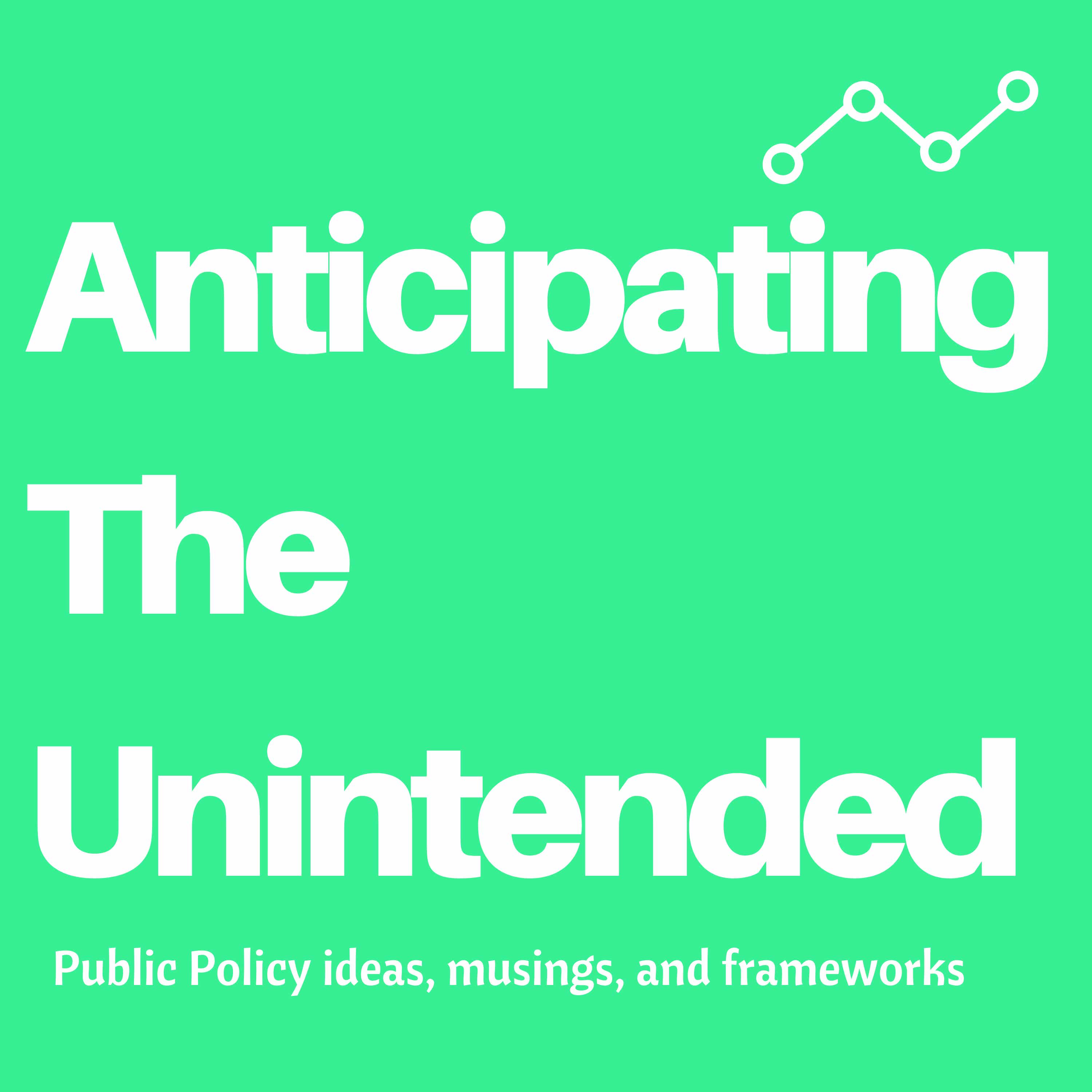#202 The Debt of the Future
Description
India Policy Watch: Passing the Burden
Insights on burning policy issues in India
— Pranay Kotasthane
As Wilson’s Matrix tells us, concentrated benefits (costs) trump diffused costs (benefits) on most occasions. Organising people around diffuse interests is difficult. As a political articulation of these voices is difficult, they are consigned to being a background hum in the cacophony of politics.
One such diffused interest group is the future generation. Apart from the common difficulty that all diffuse interest groups face, they face a small, little additional problem — they aren’t even in this world to be able to speak for themselves.
Hence, it shouldn’t come as a surprise that governments and societies shortchange future generations by borrowing more than their means for current consumption and passing this burden to the future generation.
India is no exception. Even today, the biggest expenditure item in the union budget is neither defence nor home affairs, but the interest paid by the union government to borrowers on past loans. We are paying for the profligacy of past and current governments. The chart below from this year’s budget tells us that roughly a fifth of the government’s total expenditure is being spent on interest payments.
As we keep living beyond our means, the portion of the future generation’s spending on interest payments keeps growing. This is what a real debt trap looks like.
Most governments run deficits, and so does India. But the quality of deficits matters. If governments borrow to finance physical and social infrastructure, the burden on future generations is mitigated to the extent that the outputs continue to be available to them.
But that’s not the case in India. The union government still runs a sizable revenue deficit, meaning that a portion of the borrowing is being used merely to keep the government running today. In other words, we snatch money from future generations to meet the demands of the current generation’s citizens.
In Studies in Indian Public Finance, Govinda Rao points out that while children in the age group of 0-14 constitute over 35 per cent of the population, investment in the two items that matter most for their capabilities—health and education—continues to be low.
This idea of sharing resources across generations is known as intergenerational equity. I prefer to call it intergenerational balance. A $2500 per capita income country with 20 per cent poverty must accord higher priority to improving the life chances of today’s citizens. Nevertheless, we must push governments to seek a balance between today’s consumption and tomorrow’s choices.
It is for this reason that state governments reshifting to the Old Pension Scheme is a wilful crime against future Indians. At a time when government employees already have better payscales than the median Indian, committing to an ever-growing pension liability is to rob money from the future for the benefit of a select few.
But then, matters of fiscal prudence are not politically savvy. No one ever voted for a government for its fiscal marksmanship. No politician ventures there unless specifically asked. For this reason, it was encouraging that the Prime Minister—at least rhetorically—made a case for intergenerational balance in the Parliament:
“You should not put burden on your children. Borrowing for present day needs leaving the debt burden on future generations is a matter of serious concern...For the economic well being of the nation, states also have to take the path of discipline... Only then states will be able to benefit from development.”
There’s a lot more the union government could’ve done and can still do. Criticising state governments on the floor of the parliament won’t make the problem disappear. It’s important for the union government to explain to state governments the fiscal impact of such profligacy. Aligning their cognitive maps is important. Back in 2003,
More Episodes
Prediction Time
—RSJ
In a year when countries as diverse as India, the United States, the United Kingdom, Russia, Taiwan, Pakistan and Palau go for their elections, it is tempting to go for an overarching theme for the year while looking ahead. Unfortunately, like these aforementioned elections...
Published 01/14/24
Published 01/14/24
Happy New Year
— RSJ
Happy 2024, dear readers!
We hope 2023 was good for all of you. If it wasn’t, we are glad that it’s behind you. We didn’t have too bad a 2023 ourselves. This newsletter went along swimmingly (or so we think) and we had our book ‘Missing in Action: Why You Should Care About...
Published 01/07/24


